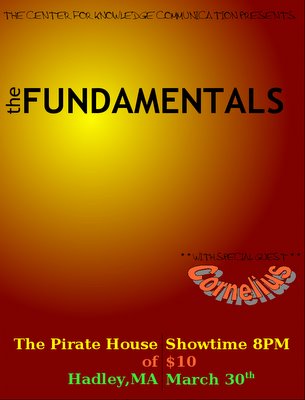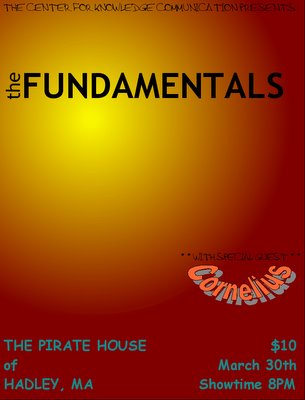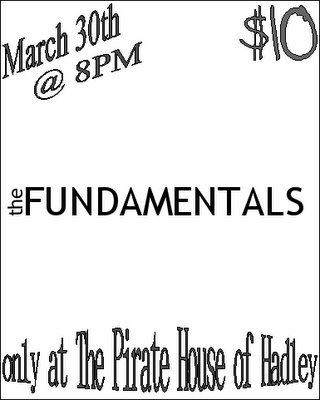Al Gore's Code Red
"I came here today because I believe that American democracy is in grave danger. It is no longer possible to ignore the strangeness of our public discourse. I know that I am not the only one who feels that something has gone basically and badly wrong in the way America's fabled "marketplace of ideas" now functions. How many of you, I wonder, have heard a friend or a family member in the last few years remark that it's almost as if America has entered "an alternate universe"?
I thought maybe it was an aberration when three-quarters of Americans said they believed that Saddam Hussein was responsible for attacking us on September 11, 2001. But more than four years later, between a third and a half still believe Saddam was personally responsible for planning and supporting the attack. At first I thought the exhaustive, non-stop coverage of the O.J. trial was just an unfortunate excess that marked an unwelcome departure from the normal good sense and judgment of our television news media. But now we know that it was merely an early example of a new pattern of serial obsessions that periodically take over the airwaves for weeks at a time.
Are we still routinely torturing helpless prisoners, and if so, does it feel right that we as American citizens are not outraged by the practice? And does it feel right to have no ongoing discussion of whether or not this abhorrent, medieval behavior is being carried out in the name of the American people? If the gap between rich and poor is widening steadily and economic stress is mounting for low-income families, why do we seem increasingly apathetic and lethargic in our role as citizens?
On the eve of the nation's decision to invade Iraq, our longest serving senator, Robert Byrd of West Virginia, stood on the Senate floor asked: "Why is this chamber empty? Why are these halls silent?" The decision that was then being considered by the Senate with virtually no meaningful debate turned out to be a fateful one. A few days ago, the former head of the National Security Agency, Retired Lt. General William Odom, said, "The invasion of Iraq, I believe, will turn out to be the greatest strategic disaster in U.S. history."
But whether you agree with his assessment or not, Senator Byrd's question is like the others that I have just posed here: he was saying, in effect, this is strange, isn't it? Aren't we supposed to have full and vigorous debates about questions as important as the choice between war and peace? Those of us who have served in the Senate and watched it change over time, could volunteer an answer to Senator Byrd's two questions: the Senate was silent on the eve of war because Senators don't feel that what they say on the floor of the Senate really matters that much any more. And the chamber was empty because the Senators were somewhere else: they were in fundraisers collecting money from special interests in order to buy 30-second TV commercials for their next re-election campaign.
In the aftermath of Hurricane Katrina, there was -- at least for a short time -- a quality of vividness and clarity of focus in our public discourse that reminded some Americans -- including some journalists -- that vividness and clarity used to be more common in the way we talk with one another about the problems and choices that we face. But then, like a passing summer storm, the moment faded. In fact there was a time when America's public discourse was consistently much more vivid, focused and clear. Our Founders, probably the most literate generation in all of history, used words with astonishing precision and believed in the Rule of Reason.
Their faith in the viability of Representative Democracy rested on their trust in the wisdom of a well-informed citizenry. But they placed particular emphasis on insuring that the public could be well-informed. And they took great care to protect the openness of the marketplace of ideas in order to ensure the free-flow of knowledge.
The values that Americans had brought from Europe to the New World had grown out of the sudden explosion of literacy and knowledge after Gutenberg's disruptive invention broke up the stagnant medieval information monopoly and triggered the Reformation, Humanism, and the Enlightenment and enshrined a new sovereign: the "Rule of Reason."
Indeed, the self-governing republic they had the audacity to establish was later named by the historian Henry Steele Commager as "the Empire of Reason."
Our founders knew all about the Roman Forum and the Agora in ancient Athens. They also understood quite well that in America, our public forum would be an ongoing conversation about democracy in which individual citizens would participate not only by speaking directly in the presence of others -- but more commonly by communicating with their fellow citizens over great distances by means of the printed word. Thus they not only protected Freedom of Assembly as a basic right, they made a special point -- in the First Amendment -- of protecting the freedom of the printing press.
Their world was dominated by the printed word. Just as the proverbial fish doesn't know it lives in water, the United States in its first half century knew nothing but the world of print: the Bible, Thomas Paine's fiery call to revolution, the Declaration of Independence, our Constitution , our laws, the Congressional Record, newspapers and books.
Though they feared that a government might try to censor the printing press -- as King George had done -- they could not imagine that America's public discourse would ever consist mainly of something other than words in print.
And yet, as we meet here this morning, more than 40 years have passed since the majority of Americans received their news and information from the printed word. Newspapers are hemorrhaging readers and, for the most part, resisting the temptation to inflate their circulation numbers. Reading itself is in sharp decline, not only in our country but in most of the world. The Republic of Letters has been invaded and occupied by television.
Radio, the internet, movies, telephones, and other media all now vie for our attention -- but it is television that still completely dominates the flow of information in modern America. In fact, according to an authoritative global study, Americans now watch television an average of four hours and 28 minutes every day -- 90 minutes more than the world average. When you assume eight hours of work a day, six to eight hours of sleep and a couple of hours to bathe, dress, eat and commute, that is almost three-quarters of all the discretionary time that the average American has. And for younger Americans, the average is even higher.
The internet is a formidable new medium of communication, but it is important to note that it still doesn't hold a candle to television. Indeed, studies show that the majority of Internet users are actually simultaneously watching television while they are online. There is an important reason why television maintains such a hold on its viewers in a way that the internet does not, but I'll get to that in a few minutes. Television first overtook newsprint to become the dominant source of information in America in 1963. But for the next two decades, the television networks mimicked the nation's leading newspapers by faithfully following the standards of the journalism profession. Indeed, men like Edward R. Murrow led the profession in raising the bar.
But all the while, television's share of the total audience for news and information continued to grow -- and its lead over newsprint continued to expand. And then one day, a smart young political consultant turned to an older elected official and succinctly described a new reality in America's public discourse: "If it's not on television, it doesn't exist."
But some extremely important elements of American Democracy have been pushed to the sidelines. And the most prominent casualty has been the "marketplace of ideas" that was so beloved and so carefully protected by our Founders. It effectively no longer exists.
It is not that we no longer share ideas with one another about public matters; of course we do. But the "Public Forum" in which our Founders searched for general agreement and applied the Rule of Reason has been grossly distorted and "restructured" beyond all recognition.
And here is my point: it is the destruction of that marketplace of ideas that accounts for the "strangeness" that now continually haunts our efforts to reason together about the choices we must make as a nation. Whether it is called a Public Forum, or a "Public Sphere" or a marketplace of ideas, the reality of open and free public discussion and debate was considered central to the operation of our democracy in America's earliest decades.
In fact, our first self-expression as a nation -- "We the People" -- made it clear where the ultimate source of authority lay. It was universally understood that the ultimate check and balance for American government was its accountability to the people. And the public forum was the place where the people held the government accountable. That is why it was so important that the marketplace of ideas operated independent from and beyond the authority of government.
The three most important characteristics of this marketplace of ideas were:
- It was open to every individual, with no barriers to entry, save the necessity of literacy. This access, it is crucial to add, applied not only to the receipt of information but also to the ability to contribute information directly into the flow of ideas that was available to all;
- The fate of ideas contributed by individuals depended, for the most part, on an emergent Meritocracy of Ideas. Those judged by the market to be good rose to the top, regardless of the wealth or class of the individual responsible for them;
- The accepted rules of discourse presumed that the participants were all governed by an unspoken duty to search for general agreement. That is what a "Conversation of Democracy" is all about. What resulted from this shared democratic enterprise was a startling new development in human history: for the first time, knowledge regularly mediated between wealth and power.
The liberating force of this new American reality was thrilling to all humankind. Thomas Jefferson declared, "I have sworn upon the alter of God eternal hostility against every form of tyranny over the mind of man." It ennobled the individual and unleashed the creativity of the human spirit. It inspired people everywhere to dream of what they could yet become. And it emboldened Americans to bravely explore the farther frontiers of freedom -- for African Americans, for women, and eventually, we still dream, for all.
And just as knowledge now mediated between wealth and power, self-government was understood to be the instrument with which the people embodied their reasoned judgments into law. The Rule of Reason under-girded and strengthened the rule of law.
But to an extent seldom appreciated, all of this - including especially the ability of the American people to exercise the reasoned collective judgments presumed in our Founders' design -- depended on the particular characteristics of the marketplace of ideas as it operated during the Age of Print.
Consider the rules by which our present "public forum" now operates, and how different they are from the forum our Founders knew. Instead of the easy and free access individuals had to participate in the national conversation by means of the printed word, the world of television makes it virtually impossible for individuals to take part in what passes for a national conversation today.
Inexpensive metal printing presses were almost everywhere in America. They were easily accessible and operated by printers eager to typeset essays, pamphlets, books or flyers.
Television stations and networks, by contrast, are almost completely inaccessible to individual citizens and almost always uninterested in ideas contributed by individual citizens.
Ironically, television programming is actually more accessible to more people than any source of information has ever been in all of history. But here is the crucial distinction: it is accessible in only one direction; there is no true interactivity, and certainly no conversation.
The number of cables connecting to homes is limited in each community and usually forms a natural monopoly. The broadcast and satellite spectrum is likewise a scarce and limited resource controlled by a few. The production of programming has been centralized and has usually required a massive capital investment. So for these and other reasons, an ever-smaller number of large corporations control virtually all of the television programming in America.
Soon after television established its dominance over print, young people who realized they were being shut out of the dialogue of democracy came up with a new form of expression in an effort to join the national conversation: the "demonstration." This new form of expression, which began in the 1960s, was essentially a poor quality theatrical production designed to capture the attention of the television cameras long enough to hold up a sign with a few printed words to convey, however plaintively, a message to the American people. Even this outlet is now rarely an avenue for expression on national television.
So, unlike the marketplace of ideas that emerged in the wake of the printing press, there is virtually no exchange of ideas at all in television's domain. My partner Joel Hyatt and I are trying to change that - at least where Current TV is concerned. Perhaps not coincidentally, we are the only independently owned news and information network in all of American television.
It is important to note that the absence of a two-way conversation in American television also means that there is no "meritocracy of ideas" on television. To the extent that there is a "marketplace" of any kind for ideas on television, it is a rigged market, an oligopoly, with imposing barriers to entry that exclude the average citizen.
The German philosopher, Jurgen Habermas, describes what has happened as "the refeudalization of the public sphere." That may sound like gobbledygook, but it's a phrase that packs a lot of meaning. The feudal system which thrived before the printing press democratized knowledge and made the idea of America thinkable, was a system in which wealth and power were intimately intertwined, and where knowledge played no mediating role whatsoever. The great mass of the people were ignorant. And their powerlessness was born of their ignorance.
It did not come as a surprise that the concentration of control over this powerful one-way medium carries with it the potential for damaging the operations of our democracy. As early as the 1920s, when the predecessor of television, radio, first debuted in the United States, there was immediate apprehension about its potential impact on democracy. One early American student of the medium wrote that if control of radio were concentrated in the hands of a few, "no nation can be free."
As a result of these fears, safeguards were enacted in the U.S. -- including the Public Interest Standard, the Equal Time Provision, and the Fairness Doctrine -- though a half century later, in 1987, they were effectively repealed. And then immediately afterwards, Rush Limbaugh and other hate-mongers began to fill the airwaves.
And radio is not the only place where big changes have taken place. Television news has undergone a series of dramatic changes. The movie "Network," which won the Best Picture Oscar in 1976, was presented as a farce but was actually a prophecy. The journalism profession morphed into the news business, which became the media industry and is now completely owned by conglomerates.
The news divisions -- which used to be seen as serving a public interest and were subsidized by the rest of the network - are now seen as profit centers designed to generate revenue and, more importantly, to advance the larger agenda of the corporation of which they are a small part. They have fewer reporters, fewer stories, smaller budgets, less travel, fewer bureaus, less independent judgment, more vulnerability to influence by management, and more dependence on government sources and canned public relations hand-outs. This tragedy is compounded by the ironic fact that this generation of journalists is the best trained and most highly skilled in the history of their profession. But they are usually not allowed to do the job they have been trained to do.
The present executive branch has made it a practice to try and control and intimidate news organizations: from PBS to CBS to Newsweek. They placed a former male escort in the White House press pool to pose as a reporter -- and then called upon him to give the president a hand at crucial moments. They paid actors to make make phony video press releases and paid cash to some reporters who were willing to take it in return for positive stories. And every day they unleash squadrons of digital brownshirts to harass and hector any journalist who is critical of the President.
For these and other reasons, The US Press was recently found in a comprehensive international study to be only the 27th freest press in the world. And that too seems strange to me.
Among the other factors damaging our public discourse in the media, the imposition by management of entertainment values on the journalism profession has resulted in scandals, fabricated sources, fictional events and the tabloidization of mainstream news. As recently stated by Dan Rather -- who was, of course, forced out of his anchor job after angering the White House -- television news has been "dumbed down and tarted up."
The coverage of political campaigns focuses on the "horse race" and little else. And the well-known axiom that guides most local television news is "if it bleeds, it leads." (To which some disheartened journalists add, "If it thinks, it stinks.")
In fact, one of the few things that Red state and Blue state America agree on is that they don't trust the news media anymore.
Clearly, the purpose of television news is no longer to inform the American people or serve the public interest. It is to "glue eyeballs to the screen" in order to build ratings and sell advertising. If you have any doubt, just look at what's on: The Robert Blake trial. The Laci Peterson tragedy. The Michael Jackson trial. The Runaway Bride. The search in Aruba. The latest twist in various celebrity couplings, and on and on and on.
And more importantly, notice what is not on: the global climate crisis, the nation's fiscal catastrophe, the hollowing out of America's industrial base, and a long list of other serious public questions that need to be addressed by the American people.
One morning not long ago, I flipped on one of the news programs in hopes of seeing information about an important world event that had happened earlier that day. But the lead story was about a young man who had been hiccupping for three years. And I must say, it was interesting; he had trouble getting dates. But what I didn't see was news.
This was the point made by Jon Stewart, the brilliant host of "The Daily Show," when he visited CNN's "Crossfire": there should be a distinction between news and entertainment.
And it really matters because the subjugation of news by entertainment seriously harms our democracy: it leads to dysfunctional journalism that fails to inform the people. And when the people are not informed, they cannot hold government accountable when it is incompetent, corrupt, or both.
One of the only avenues left for the expression of public or political ideas on television is through the purchase of advertising, usually in 30-second chunks. These short commercials are now the principal form of communication between candidates and voters. As a result, our elected officials now spend all of their time raising money to purchase these ads.
That is why the House and Senate campaign committees now search for candidates who are multi-millionaires and can buy the ads with their own personal resources. As one consequence, the halls of Congress are now filling up with the wealthy.
Campaign finance reform, however well it is drafted, often misses the main point: so long as the only means of engaging in political dialogue is through purchasing expensive television advertising, money will continue by one means or another to dominate American politic s. And ideas will no longer mediate between wealth and power.
And what if an individual citizen, or a group of citizens wants to enter the public debate by expressing their views on television? Since they cannot simply join the conversation, some of them have resorted to raising money in order to buy 30 seconds in which to express their opinion. But they are not even allowed to do that. Moveon.org tried to buy ads last year to express opposition to Bush's Medicare proposal which was then being debated by Congress. They were told "issue advocacy" was not permissible. Then, one of the networks that had refused the Moveon ad began running advertisements by the White House in favor of the President's Medicare proposal. So Moveon complained and the White House ad was temporarily removed.
By temporary, I mean it was removed until the White House complained and the network immediately put the ad back on, yet still refused to present the Moveon ad.
The advertising of products, of course, is the real purpose of television. And it is difficult to overstate the extent to which modern pervasive electronic advertising has reshaped our society. In the 1950s, John Kenneth Galbraith first described the way in which advertising has altered the classical relationship by which supply and demand are balanced over time by the invisible hand of the marketplace. According to Galbraith, modern advertising campaigns were beginning to create high levels of demand for products that consumers never knew they wanted, much less needed.
The same phenomenon Galbraith noticed in the commercial marketplace is now the dominant fact of life in what used to be America's marketplace for ideas. The inherent value or validity of political propositions put forward by candidates for office is now largely irrelevant compared to the advertising campaigns that shape the perceptions of voters.
Our democracy has been hallowed out. The opinions of the voters are, in effect, purchased, just as demand for new products is artificially created. Decades ago Walter Lippman wrote, "the manufacture of consent...was supposed to have died out with the appearance of democracy...but it has not died out. It has, in fact, improved enormously in technique...under the impact of propaganda, it is no longer plausible to believe in the original dogma of democracy."
Like you, I recoil at Lippman's cynical dismissal of America's gift to human history. But in order to reclaim our birthright, we Americans must resolve to repair the systemic decay of the public forum and create new ways to engage in a genuine and not manipulative conversation about our future. Americans in both parties should insist on the re-establishment of respect for the Rule of Reason. We must, for example, stop tolerating the rejection and distortion of science. We must insist on an end to the cynical use of pseudo studies known to be false for the purpose of intentionally clouding the public's ability to discern the truth.
I don't know all the answers, but along with my partner, Joel Hyatt, I am trying to work within the medium of television to recreate a multi-way conversation that includes individuals and operates according to a meritocracy of ideas. If you would like to know more, we are having a press conference on Friday morning at the Regency Hotel.
We are learning some fascinating lessons about the way decisions are made in the television industry, and it may well be that the public would be well served by some changes in law and policy to stimulate more diversity of viewpoints and a higher regard for the public interest. But we are succeeding within the marketplace by reaching out to individuals and asking them to co-create our network.
The greatest source of hope for reestablishing a vigorous and accessible marketplace for ideas is the Internet. Indeed, Current TV relies on video streaming over the Internet as the means by which individuals send us what we call viewer-created content or VC squared. We also rely on the Internet for the two-way conversation that we have every day with our viewers enabling them to participate in the decisions on programming our network.
I know that many of you attending this conference are also working on creative ways to use the Internet as a means for bringing more voices into America's ongoing conversation. I salute you as kindred spirits and wish you every success.
I want to close with the two things I've learned about the Internet that are most directly relevant to the conference that you are having here today.
First, as exciting as the Internet is, it still lacks the single most powerful characteristic of the television medium; because of its packet-switching architecture, and its continued reliance on a wide variety of bandwidth connections (including the so-called "last mile" to the home), it does not support the real-time mass distribution of full-motion video.
Make no mistake, full-motion video is what makes television such a powerful medium. Our brains - like the brains of all vertebrates -- are hard-wired to immediately notice sudden movement in our field of vision. We not only notice, we are compelled to look. When our evolutionary predecessors gathered on the African savanna a million years ago and the leaves next to them moved, the ones who didn't look are not our ancestors. The ones who did look passed on to us the genetic trait that neuroscientists call "the establishing reflex." And that is the brain syndrome activated by television continuously - sometimes as frequently as once per second. That is the reason why the industry phrase, "glue eyeballs to the screen," is actually more than a glib and idle boast. It is also a major part of the reason why Americans watch the TV screen an average of four and a half hours a day.
It is true that video streaming is becoming more common over the Internet, and true as well that cheap storage of streamed video is making it possible for many young television viewers to engage in what the industry calls "time shifting" and personalize their television watching habits. Moreover, as higher bandwidth connections continue to replace smaller information pipelines, the Internet's capacity for carrying television will continue to dramatically improve. But in spite of these developments, it is television delivered over cable and satellite that will continue for the remainder of this decade and probably the next to be the dominant medium of communication in America's democracy. And so long as that is the case, I truly believe that America's democracy is at grave risk.
The final point I want to make is this: We must ensure that the Internet remains open and accessible to all citizens without any limitation on the ability of individuals to choose the content they wish regardless of the Internet service provider they use to connect to the Worldwide Web. We cannot take this future for granted. We must be prepared to fight for it because some of the same forces of corporate consolidation and control that have distorted the television marketplace have an interest in controlling the Internet marketplace as well. Far too much is at stake to ever allow that to happen.
We must ensure by all means possible that this medium of democracy's future develops in the mold of the open and free marketplace of ideas that our Founders knew was essential to the health and survival of freedom."



















